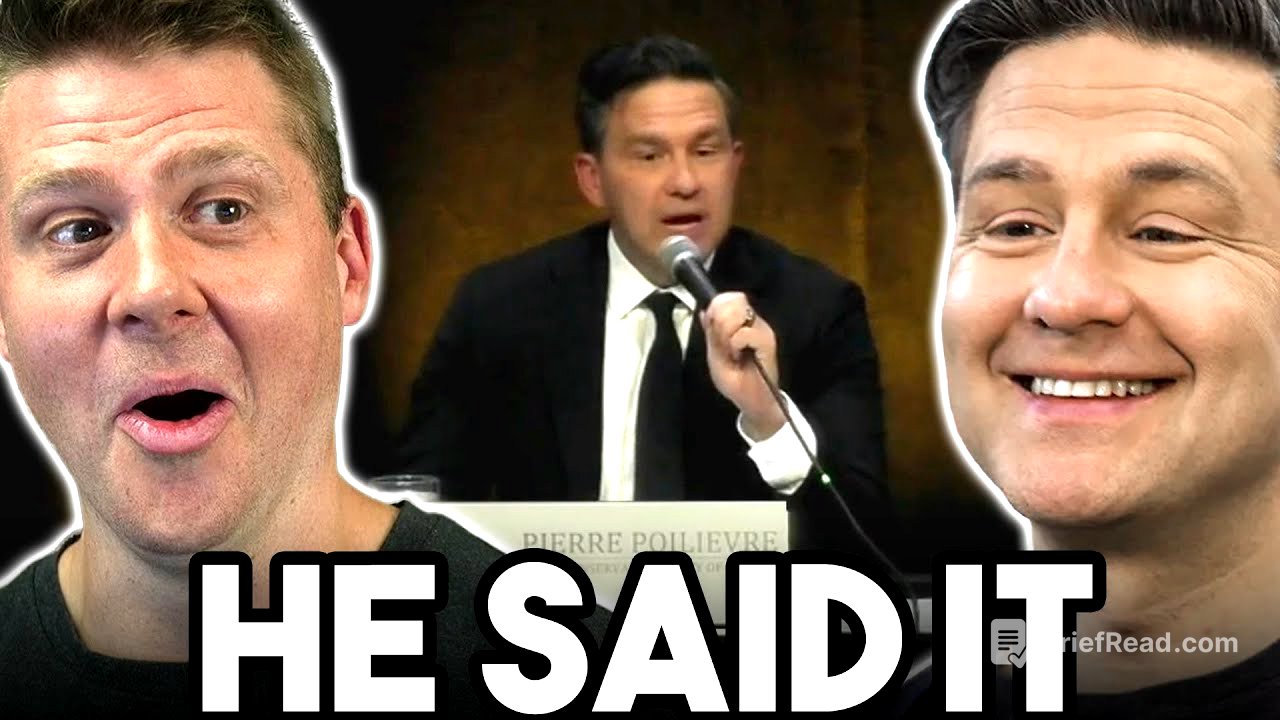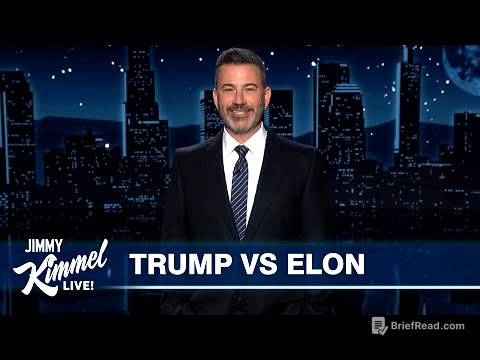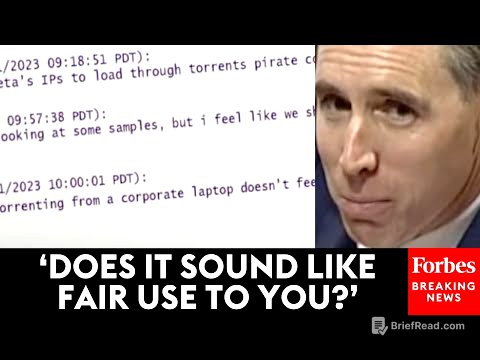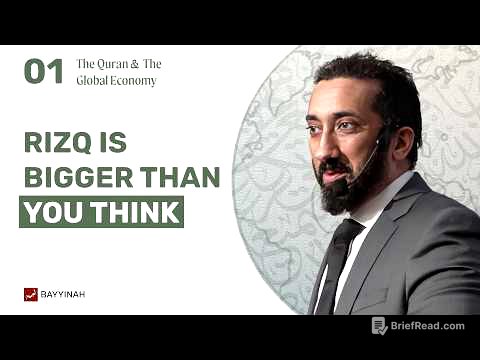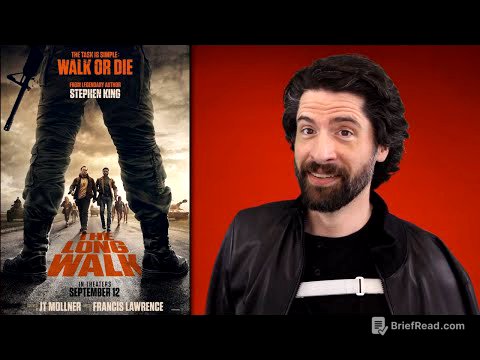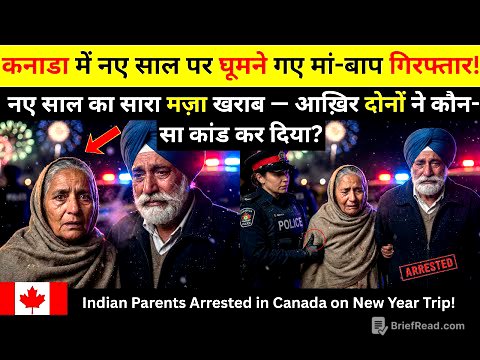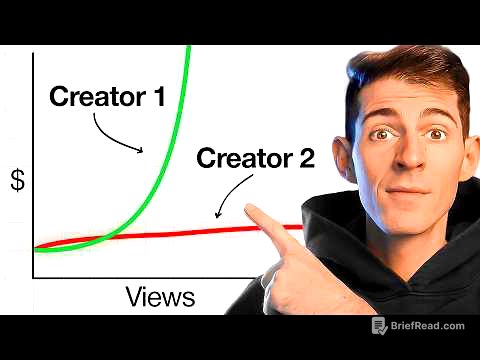TLDR;
This video summarizes and comments on a bi-election debate in Battle River Crowfoot, featuring candidates like Pierre Poilievre, Ashley McDonald, and Bonnie Critley. It also touches on Kate Harrison's remarks on Canada's trade deals, Pete Hoekstra's optimism about a US-Canada trade agreement, and Poilievre's stance on immigration and the "longest ballot" issue. The video critiques the performances of various candidates and discusses potential conflicts of interest involving government officials and infrastructure projects.
- Pierre Poilievre is portrayed as a strong, energetic candidate with clear ideas, contrasting with other candidates.
- The discussion includes concerns about tariffs, inflation, and the impact of government policies on affordability and the cost of living for Canadians.
- Immigration policies and their potential effects on wages, housing, and healthcare are debated.
Bi-Election Debate Introduction [0:04]
The video introduces the bi-election debate in Battle River Crowfoot, highlighting the contrast between the candidates. Ashley McDonald from the Green Party is described as sleepy and quiet, often reading notes, while Pierre Poilievre is depicted as energetic and passionate. The video emphasizes the importance of ideas from leaders over mere slogans.
Candidates' Opening Statements [0:53]
Pierre Poilievre's opening statement is featured, where he acknowledges the region's importance in feeding, powering, and protecting the country. He speaks about his Alberta values of faith, family, freedom, hard work, and helping neighbors. Poilievre outlines his past actions, such as fighting the carbon tax and advocating for resource development, and his plans to address local issues with national leadership, including opposing electric vehicle mandates and supporting farmers and firearms owners. Bonnie Critley, an independent candidate, is shown criticizing party politics and accusing the Conservative Party of losing its way. She emphasizes the need for someone who understands local issues and attacks Poilievre while remaining silent on Mark Carney's involvement in tax avoidance and investments in American stocks.
Kate Harrison's Truth Bomb on CBC [4:15]
Kate Harrison discusses the volatility and uncertainty surrounding Canada's trade deals, particularly with Europe and Japan. She points out that the details of these deals are thin and that Canada will have to renegotiate the USMCA in a year. Harrison suggests Canada is holding back on concessions until the broader renegotiation in 2026 but faces political and economic realities due to continued tariffs affecting key industrial sectors in Ontario and Quebec. She also notes that Canadians voted Liberal with the expectation that Mark Carney would secure a trade deal, but they are still grappling with issues like the cost of groceries and the housing crisis.
Poilievre on Immigration and Accountability [7:07]
Poilievre addresses the issue of the "longest ballot," calling it a scam and proposing legislative changes to prevent it in the future by requiring unique signatures and financial agents for each candidate. He also commits to building on Stephen Harper's Accountability Act to close loopholes exploited by liberals like Mark Carney, ensuring leaders work for the people, not private profit. On immigration, Poilievre states that while immigration is great when done right, the Liberals have adopted a "post-nationalist ideology" that favors globalist interests and multinational corporations at the expense of Canadians. He argues that the abuse of temporary foreign worker programs and international student programs must stop and that Canada needs more people leaving than coming to alleviate pressure on healthcare, housing, and the job market.
Pete Hoekstra's Optimism on Trade Deal [10:07]
Pete Hoekstra, former US ambassador to the Netherlands under President Trump, expresses optimism about reaching a trade deal with Canada, despite looming tariffs. He compares the US-Canada relationship to a cloth being stretched but believes it will become stronger. However, the video argues that the relationship is already frayed, with many Canadians feeling negatively towards America. Hoekstra avoids directly linking tariffs to inflation and acknowledges that President Trump believes Canada can be difficult to deal with.
Candidates' Final Remarks and Closing Thoughts [15:40]
The video presents the final remarks of several candidates, including the Green Party candidate's humorous disappointment that Poilievre didn't say "woke" during the debate. Bonnie Critley's cringe-worthy comments and attacks on Poilievre are highlighted, while Poilievre's closing remarks focus on providing national leadership to local issues, such as reversing the EV mandate and protecting firearms owners. The video concludes that Poilievre "demolished" the other candidates, who mostly complained and attacked him without offering a positive outlook.
Conflict of Interest Update [19:23]
The video provides an update on a potential conflict of interest involving Anita Anand's husband, John Nolton, and OMR's infrastructure. While Nolton no longer holds shares in Straight Crossings development, the sale of those shares may have triggered a payout that would benefit him due to Mark Carney dropping the price, raising concerns about transparency and potential conflicts of interest.
